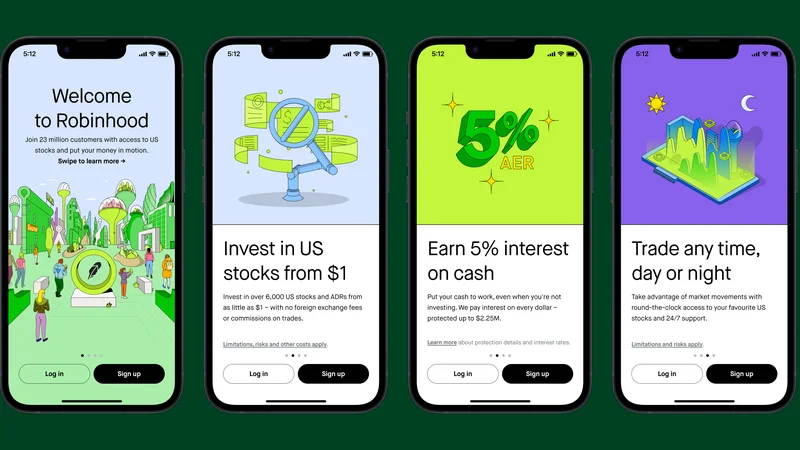The Future of Mexican Chain Restaurants: The New Blueprint for Success vs. the Coming Extinction
The Great Restaurant Bifurcation: Why Abuelo's Bankruptcy Isn't an Ending, But a New Beginning
When I saw headlines like 'Beloved Mexican restaurant declares bankruptcy, closing 24 restaurants,' my first thought wasn’t about fajitas or margaritas. As a systems analyst, my mind immediately jumps to the underlying architecture. I don’t just see a 36-year-old chain closing its doors; I see a legacy model reaching its operational limits. I see a data point signaling a profound paradigm shift that’s reshaping not just how we eat, but the very structure of consumer business itself.
The news is grim on the surface: a beloved brand, once boasting 40 locations, now whittled down to 16, buried under tens of millions in debt. The official reasons cited—rising costs, staffing challenges, changing consumer preferences—are the standard refrains of a struggling business. But they’re symptoms, not the cause. The real story, the one that truly fascinates me, is that Abuelo’s isn’t failing because Mexican food is unpopular. It’s failing because the category of “mid-sized, sit-down Mexican chain” is becoming technologically and culturally obsolete.
We are witnessing a great bifurcation, a splitting of the market into two powerful, opposing poles. On one end, you have hyper-efficient, mass-scale delivery systems. On the other, you have hyper-local, experience-driven artisans. The comfortable, sprawling middle ground that chains like Abuelo’s occupied for decades? It’s evaporating. This isn’t a tragedy. It’s the necessary, and frankly exciting, evolution of a complex system.
The Cloud vs. The Mainframe
Let’s reframe this. Think of the restaurant industry not in terms of cuisine, but in terms of computing architecture. For decades, a restaurant like Abuelo’s operated like an old-school mainframe computer. It was a monolithic entity. It had a huge physical footprint, high overhead for heating, cooling, and staffing a large dining room, and a complex menu that tried to be all things to all people. It owned the whole stack, from the appetizers to the dessert, all under one expensive roof. And for a while, that model worked.
Then came the cloud.
Taco Bell, with over 7,600 locations, and Chipotle, with more than 3,600, are not restaurants in the traditional sense. They are the Amazon Web Services and Microsoft Azure of the food world. They’ve unbundled the dining experience into its most essential, scalable components: speed, consistency, and cost. They have perfected the art of logistical efficiency—in simpler terms, they’ve figured out how to get a very specific, repeatable product into your hands as fast as humanly possible with minimal overhead. Their success isn't just about burritos; it’s about a brilliantly engineered system that has rendered the old mainframe model impossibly slow and inefficient by comparison.

When you look at the numbers, it’s just staggering—the gap between Chipotle at number two with 3,600 locations and the next competitor, Qdoba, at a mere 777, shows this isn't a gradual slope but a sheer cliff face. The scale of the two leaders has created a gravitational pull that the mid-sized players simply can't escape. So, does this mean the future of Mexican food is just an endless assembly line of standardized bowls and crunchwraps? Is the human element being optimized into oblivion?
The Rise of the Niche Artisan
This is where the story gets truly interesting. Because at the exact same time the cloud giants are consolidating the mass market, a vibrant new ecosystem is emerging at the other end of the spectrum. While Abuelo’s was filing for bankruptcy, a small North Carolina chain called Mezcalito announced it was expanding into a buzzy new development in Raleigh.
When I first read about Mezcalito—in a report titled 'Popular Mexican chain opening new restaurant in buzzy Raleigh development'—I honestly just sat back in my chair and smiled. This is the kind of breakthrough that reminds me why I love studying these systems in the first place. Mezcalito isn’t trying to be a smaller, weaker version of Chipotle. It’s playing a completely different game. It’s the agile, specialized startup that thrives by offering something the cloud giants can’t: a curated, authentic, human-centric experience.
Look at its strategy. It’s expanding into a mixed-use development alongside a craft coffee shop, a New American restaurant with South Asian flavors, and a high-concept cocktail bar named after a Shakespeare play. It’s integrating itself into a local culture hub. It’s not just selling tacos; it’s selling an evening out. It’s selling community. By partnering with a James Beard semifinalist chef and building a brand around a specific bar program of tequila and mezcal, Mezcalito is creating a deep, defensible niche. It can’t compete on price or speed, so it competes fiercely on vibe, quality, and experience.
This is the second pole of the bifurcation. As the middle hollows out, it creates a vacuum that is being filled by these passionate, focused creators. It’s a beautiful example of market dynamics creating an opportunity for artistry to flourish. The question is, how many of these smaller, more fragile ecosystems can survive? And what does it mean for the communities that relied on the stability of the old mainframe restaurants, the places that were "good enough" for a Tuesday night family dinner? We can’t ignore that this evolution comes with a human cost, as jobs are lost and familiar mainstays disappear. It’s a transition we have to manage with our eyes open.
The Future is Curated, Not Just Cooked
So, no, the bankruptcy of Abuelo’s is not the death knell for the American restaurant. It’s the end of an era defined by comfortable mediocrity and one-size-fits-all business models. The future isn’t a single path; it’s a fork in the road. You’ll either get your meal from a ruthlessly efficient, globally-scaled logistics network or from a deeply personal, locally-rooted artisan. The choice will be between optimization and experience. And frankly, a world with clearer, more defined choices is a far more interesting one to live in. We aren't losing restaurants; we're witnessing the birth of a more dynamic, more specialized, and ultimately more human food ecosystem.
-

Warren Buffett's OXY Stock Play: The Latest Drama, Buffett's Angle, and Why You Shouldn't Believe the Hype
Solet'sgetthisstraight.Occide...
-

The Great Up-Leveling: What's Happening Now and How We Step Up
Haveyoueverfeltlikeyou'redri...
-

The Future of Auto Parts: How to Find Any Part Instantly and What Comes Next
Walkintoany`autoparts`store—a...
-

Applied Digital (APLD) Stock: Analyzing the Surge, Analyst Targets, and Its Real Valuation
AppliedDigital'sParabolicRise:...
-

Analyzing Robinhood: What the New Gold Card Means for its 2025 Stock Price
Robinhood's$123BillionBet:IsT...
- Search
- Recently Published
-
- DeFi Token Performance & Investor Trends Post-October Crash: what they won't tell you about investors and the bleak 2025 ahead
- Render: What it *really* is, the tech-bro hype, and that token's dubious 'value'
- APLD Stock: What's *Actually* Fueling This "Big Move"?
- Avici: The Real Meaning, Those Songs, and the 'Hell' We Ignore
- Uber Ride Demand: Cost Analysis vs. Thanksgiving Deals
- Stock Market Rollercoaster: AI Fears vs. Rate Hike Panic
- Bitcoin: The Price, The Spin, & My Take
- Asia: Its Regions, Countries, & Why Your Mental Map is Wrong
- Retirement Age: A Paradigm Shift for Your Future
- Starknet: What it is, its tokenomics, and current valuation
- Tag list
-
- Blockchain (11)
- Decentralization (5)
- Smart Contracts (4)
- Cryptocurrency (26)
- DeFi (5)
- Bitcoin (31)
- Trump (5)
- Ethereum (8)
- Pudgy Penguins (6)
- NFT (5)
- Solana (5)
- cryptocurrency (6)
- bitcoin (7)
- Plasma (5)
- Zcash (12)
- Aster (10)
- nbis stock (5)
- iren stock (5)
- crypto (7)
- ZKsync (5)
- irs stimulus checks 2025 (6)
- pi (6)
- hims stock (4)
- kimberly clark (5)
- uae (5)
